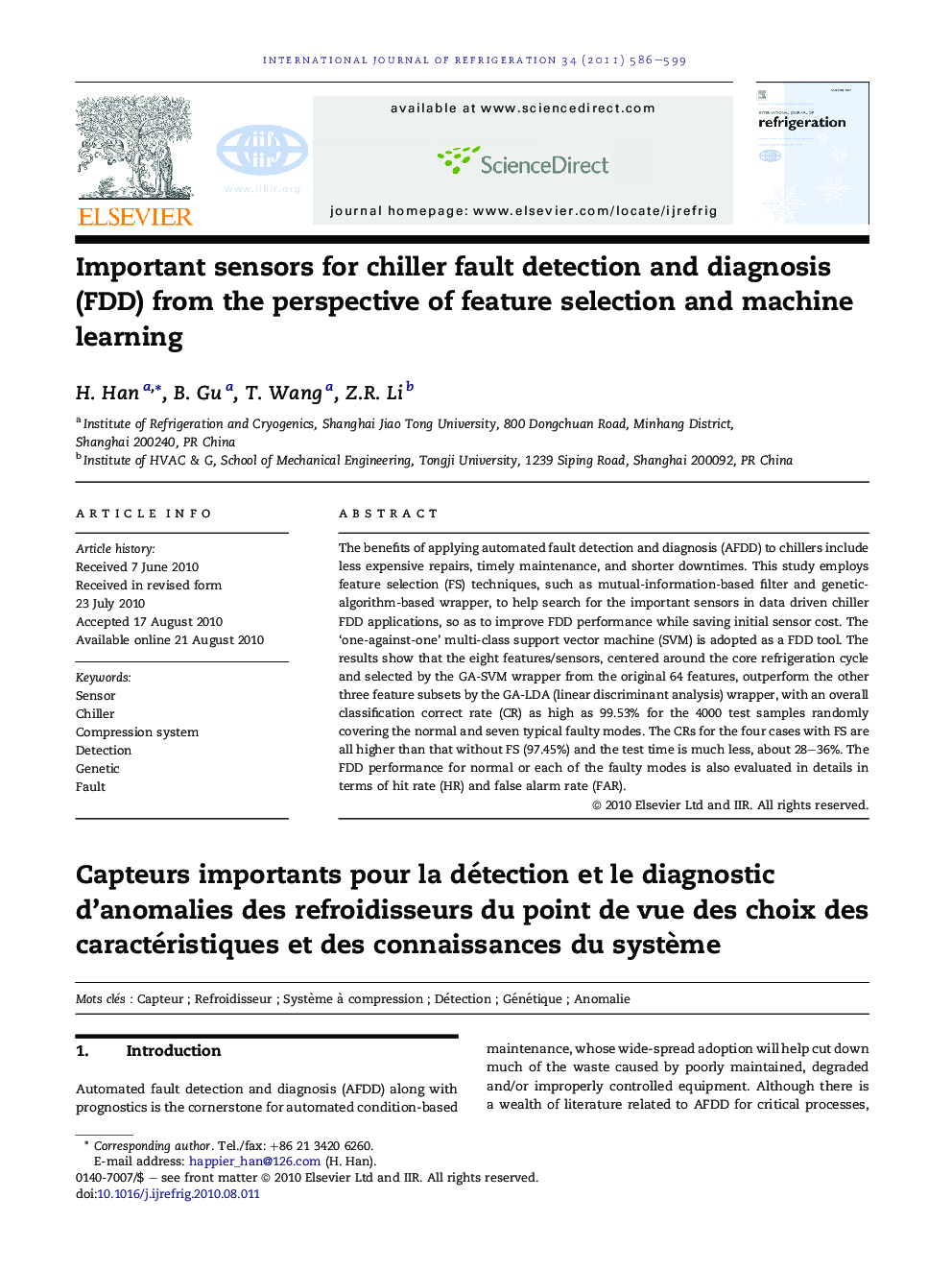| Article ID | Journal | Published Year | Pages | File Type |
|---|---|---|---|---|
| 789711 | International Journal of Refrigeration | 2011 | 14 Pages |
The benefits of applying automated fault detection and diagnosis (AFDD) to chillers include less expensive repairs, timely maintenance, and shorter downtimes. This study employs feature selection (FS) techniques, such as mutual-information-based filter and genetic-algorithm-based wrapper, to help search for the important sensors in data driven chiller FDD applications, so as to improve FDD performance while saving initial sensor cost. The ‘one-against-one’ multi-class support vector machine (SVM) is adopted as a FDD tool. The results show that the eight features/sensors, centered around the core refrigeration cycle and selected by the GA-SVM wrapper from the original 64 features, outperform the other three feature subsets by the GA-LDA (linear discriminant analysis) wrapper, with an overall classification correct rate (CR) as high as 99.53% for the 4000 test samples randomly covering the normal and seven typical faulty modes. The CRs for the four cases with FS are all higher than that without FS (97.45%) and the test time is much less, about 28–36%. The FDD performance for normal or each of the faulty modes is also evaluated in details in terms of hit rate (HR) and false alarm rate (FAR).
